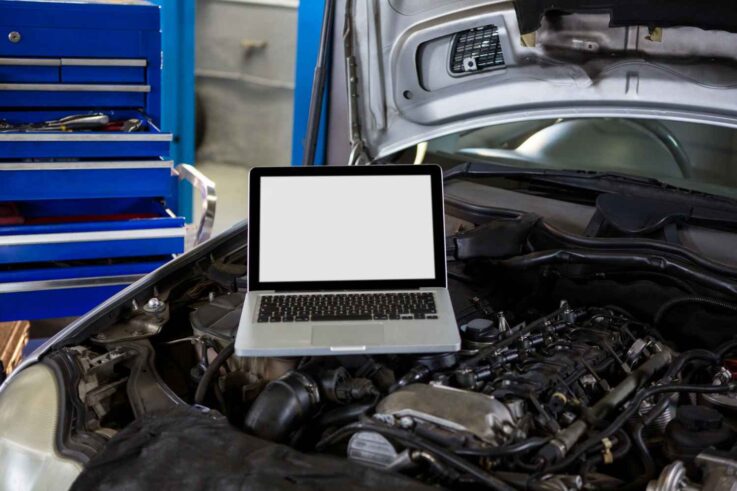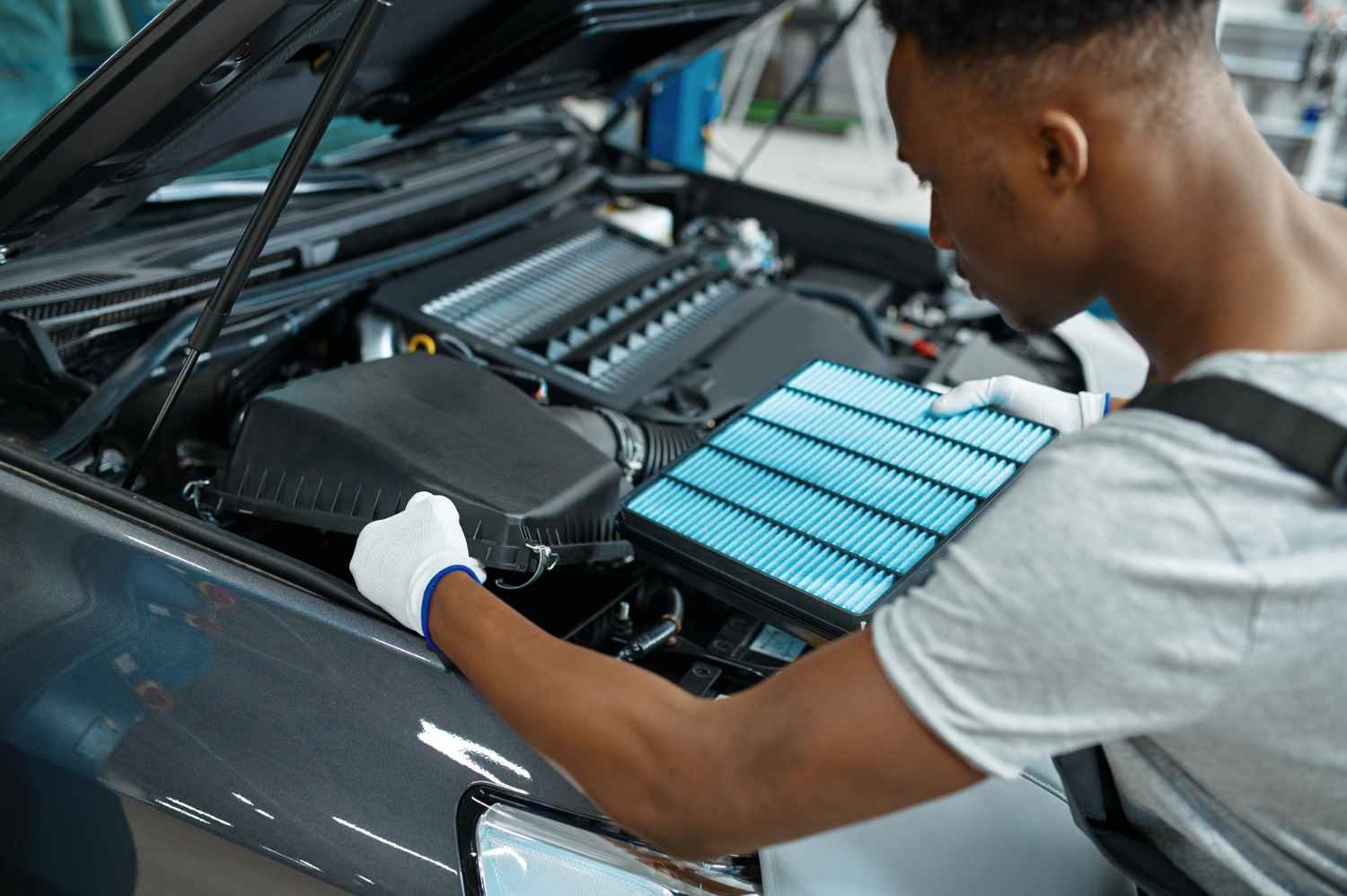What is an ECU Tune?
An ECU tune, also known as an engine control unit tune or remap, refers to modifying the software programming of a vehicle’s engine control unit (ECU). The ECU manages various aspects of the engine’s performance, including fuel delivery, ignition timing, boost pressure (in turbocharged engines), and other parameters influencing power output, efficiency, and drivability. During an ECU tune, the original software programming is modified or replaced with custom or optimised software to improve the engine’s performance characteristics. This is typically done by a professional tuner using specialised equipment and software.
Common Modifications
The specific changes made during an ECU tune can vary depending on the goals and preferences of the vehicle owner. Some common modifications that can be made through an ECU tune include the following:
- Increased Power and Torque: The ECU can be reprogrammed to deliver more power and torque, often by adjusting fuel and ignition timing, optimising air-fuel ratios, and increasing boost pressure (if applicable). This can enhance acceleration and overall performance.
- Improved Fuel Efficiency: An ECU tune can potentially enhance fuel efficiency by optimising fuel delivery and combustion parameters. This can be achieved by adjusting air-fuel ratios, reducing unnecessary engine idling, and optimising various engine parameters for better efficiency.
- Enhanced Throttle Response: ECU tuning can improve throttle response, making the engine more responsive to driver inputs. This can lead to a more engaging driving experience with improved acceleration and better control.
- Elimination of Power Restrictions: Some vehicles have power restrictions imposed by manufacturers to meet emissions regulations or market-specific requirements. An ECU tune can remove or modify these restrictions, allowing the engine to realise its full potential.
- Customised Performance: ECU tuning can be tailored to the specific needs of the vehicle owner. For example, it can focus on achieving a specific power level, enhancing low-end torque for better towing capabilities, or optimising performance for specific driving conditions (e.g., track days or off-road use).

What are the Advantages of the ECU Tune?
ECU tuning offers several advantages for vehicle owners looking to enhance their vehicle’s performance and drivability. Here are some of the key advantages of ECU tuning:
- Increased Power and Torque: ECU tuning can unleash the hidden potential of your engine, resulting in increased power and torque output. An ECU tune can improve the engine’s performance characteristics by optimising fuel delivery, ignition timing, and other parameters, leading to improved acceleration and overall power.
- Enhanced Throttle Response: ECU tuning can significantly improve throttle response, making your vehicle more responsive to driver inputs. This means that when you press the accelerator pedal, you’ll experience quicker and more immediate acceleration, providing a more engaging driving experience.
- Improved Fuel Efficiency: While ECU tuning is often associated with increased performance, it can also help improve fuel efficiency. An ECU tune can enhance the engine’s efficiency by optimising fuel delivery and combustion parameters, leading to better fuel economy. This is especially beneficial for those who do a lot of city driving or have long commutes.
- Better Drivability: ECU tuning can improve the overall drivability of your vehicle. By optimising various engine parameters, such as throttle response, torque delivery, and shifting characteristics (in automatic transmissions), an ECU tune can make your vehicle smoother, more predictable, and easier to drive in various conditions.
- Customisable Performance: ECU tuning allows for customisation based on your specific needs and preferences. Whether you’re looking for increased power, better low-end torque, improved high-speed performance, or optimised performance for specific driving conditions, an ECU tune can be tailored to meet your requirements.
- Compatibility with Modifications: If you’ve made modifications to your vehicle, such as installing aftermarket exhaust systems, intakes, or turbochargers, an ECU tune can help optimise the engine’s performance in conjunction with these modifications. It ensures the engine management system is properly calibrated to take full advantage of the upgrades.
- Retained OEM Reliability: A professionally executed ECU tune can retain the reliability and durability of your vehicle’s engine. When performed by experienced tuners who understand the limits and capabilities of the engine, an ECU tune can enhance performance without compromising the vehicle’s long-term reliability.
What are the Disadvantages of ECU Tune?
While ECU tuning can offer various benefits and improvements to a vehicle’s performance, it’s essential to consider potential disadvantages and challenges. Here are some of the key disadvantages of ECU tuning:
- Voiding Manufacturer Warranty: Modifying a vehicle’s ECU programming can void the manufacturer’s warranty. Manufacturers typically do not endorse or support aftermarket modifications, including ECU tuning. If a warranty claim arises in the future, the manufacturer may refuse coverage if they determine that the ECU tune caused or contributed to the issue.
- Increased Risk of Engine Damage: Incorrectly performed or overly aggressive ECU tunes can increase the risk of engine damage. If the engine is pushed beyond its safe limits, it may result in excessive heat buildup, premature wear on engine components, or potential engine failure. Choosing a reputable tuner with expertise in ECU tuning is crucial to minimise this risk.
- Reduced Long-Term Reliability: While properly executed ECU tunes can maintain the long-term reliability of the engine, aggressive tuning or pushing the engine beyond its safe limits may have adverse effects. It’s essential to strike a balance between performance improvements and maintaining the engine’s longevity.
- Non-Compliance with Emission Regulations: ECU tuning that alters emission control systems, such as removing or modifying catalytic converters or tampering with emissions-related sensors can render the vehicle non-compliant with local emission regulations. This can result in legal issues, fines, or the inability to pass emissions tests.
- Potential Drivability Issues: An ECU tune may sometimes result in unexpected drivability issues. For example, modifications to maximise power at high RPMs may sacrifice low-end torque, making the vehicle less responsive during everyday driving conditions. Tuning that is well-calibrated and matched with other modifications may lead to drivability problems or inconsistent performance.
- Tuner Skill and Reputation: The quality and expertise of the tuner performing the ECU tune can significantly impact the results. Choosing an inexperienced or unreliable tuner may lead to suboptimal performance, drivability issues, or even engine damage. Researching and selecting a reputable tuner with a track record of successful and safe ECU tuning is essential.
- Cost Considerations: ECU tuning typically comes at a cost, which can vary depending on the vehicle, the extent of modifications, and the tuner’s expertise. The cost may include the tuning service, necessary hardware modifications or additions, and potential future retunes or adjustments. Considering the financial implications and determining if the benefits outweigh the costs is essential.
Before proceeding with an ECU tune, it’s crucial to fully understand the potential disadvantages and weigh them against the desired benefits. Consult with professionals, research reputable tuners, and consider the impact on warranties, emissions compliance, and long-term reliability. It’s recommended to prioritise safety, legality, and the overall suitability of an ECU tune for your specific vehicle and driving needs.

Should you Tune your ECU
The decision to tune your ECU is personal and depends on your specific goals, preferences, and considerations. Here are some factors to consider when deciding whether or not to tune your ECU:
- Performance Enhancement: If you’re seeking improved performance, such as increased power, better throttle response, or enhanced drivability, an ECU tune can help achieve these goals. It can unlock the potential of your engine and optimise various parameters to maximise performance.
- Existing Modifications: If you have already made modifications to your vehicle, such as installing aftermarket exhaust systems, intakes, or turbochargers, an ECU tune can ensure that the engine management system is properly calibrated to work in harmony with these modifications. It can optimise the performance and efficiency of the overall setup.
- Warranty Considerations: It’s essential to be aware that modifying the ECU programming may void the manufacturer’s warranty. If your vehicle is still under warranty and you’re concerned about potential warranty issues, it’s advisable to consult with the manufacturer or a qualified representative to understand their policies regarding aftermarket modifications.
- Legal Compliance: ECU tuning that alters emission control systems or violates local regulations can have legal implications. Ensure that the tuning modifications align with applicable laws and emissions regulations in your area to avoid legal issues or penalties.
- Professional Tuning: A critical factor in the success of an ECU tune is the expertise and experience of the tuner. Choosing a reputable and skilled tuner who understands the intricacies of ECU tuning is essential for achieving optimal results and minimising potential risks.
- Long-Term Reliability: Consider the long-term reliability of your vehicle. Aggressive tuning or pushing the engine beyond its safe limits may increase the risk of engine damage or premature wear. Ensure the tuner considers the engine’s durability, cooling system capacity, and safety.
- Budget and Cost: ECU tuning typically comes at a cost, which can vary depending on the vehicle and the extent of modifications required. You have to consider your budget and weigh the cost of tuning against the benefits you expect to gain from it.



